Careful stitches mend the cracks in these vessels that woodturning studio Ash & Plumb has created for London’s Collect craft fair from an oak tree felled by lightning.
The Novus collection includes seven miniatures and seven more large-scale, monumental vessels – some measuring up to 80 centimetres high and half a metre in diameter.
All are made from the wood of a towering four-tonne oak tree that was downed in Heathfield, East Sussex, during a storm.
“Most of our wood either comes from Sussex or Kent,” said Dru Plumb, who co-founded Ash & Plumb with Barnaby Ash. “We try to keep it as local as possible.”
“With this one, we found a single lightning-struck oak tree that had a lot of beautiful cracks running through it all.”
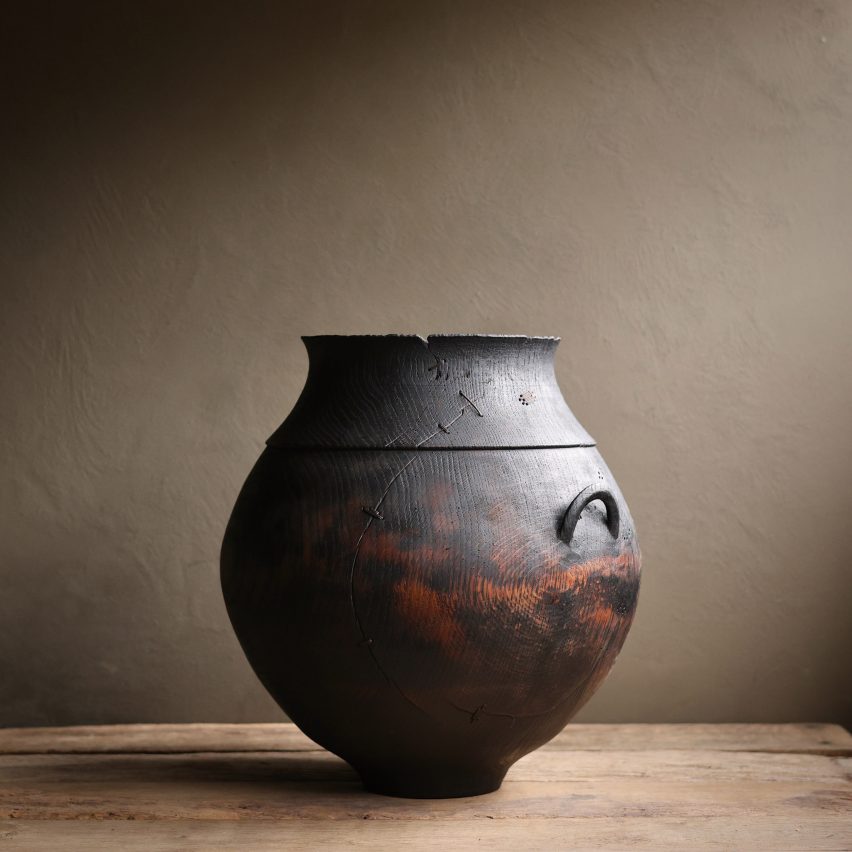
Influenced by the Japanese art of kintsugi – a ceramic mending technique in which cracks are filled with golden lacquer – the studio aimed to celebrate these imperfections.
“We want it to feel like each piece has a history to it,” Plumb told Dezeen. “Even though it’s contemporary and recently created, it’s got an old soul.”
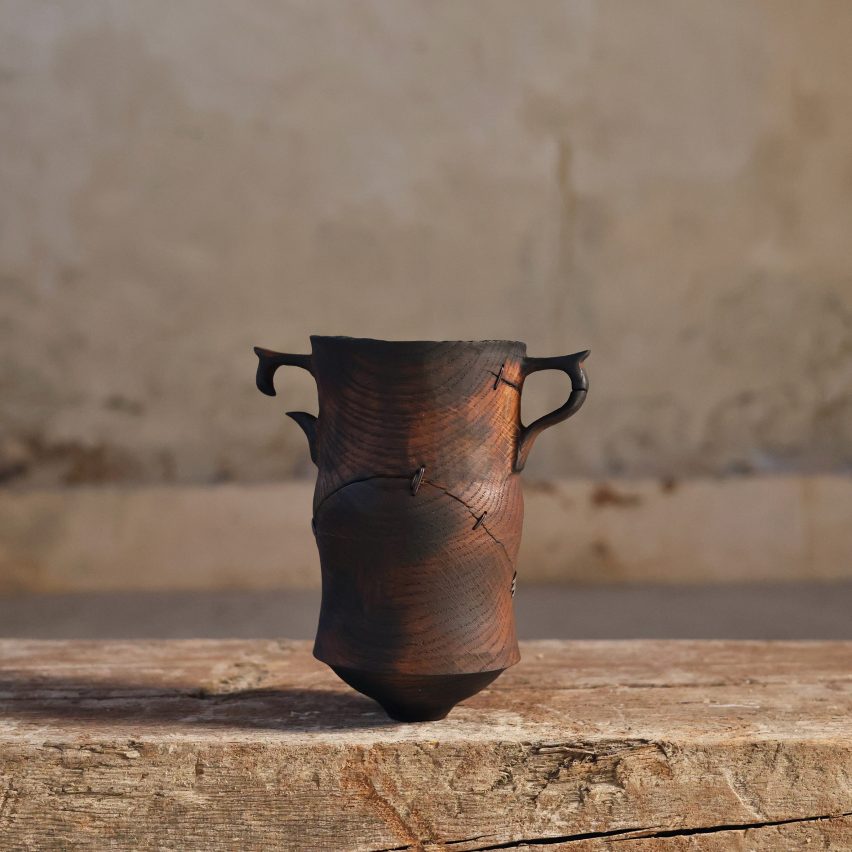
Each piece is carved out of a single block of wood, meaning it does not rely on glue or joints.
To ensure structural stability, Ash & Plumb adjusted the shape of the pieces and the placement of their sculptural handles as cracks were revealed in the turning process.
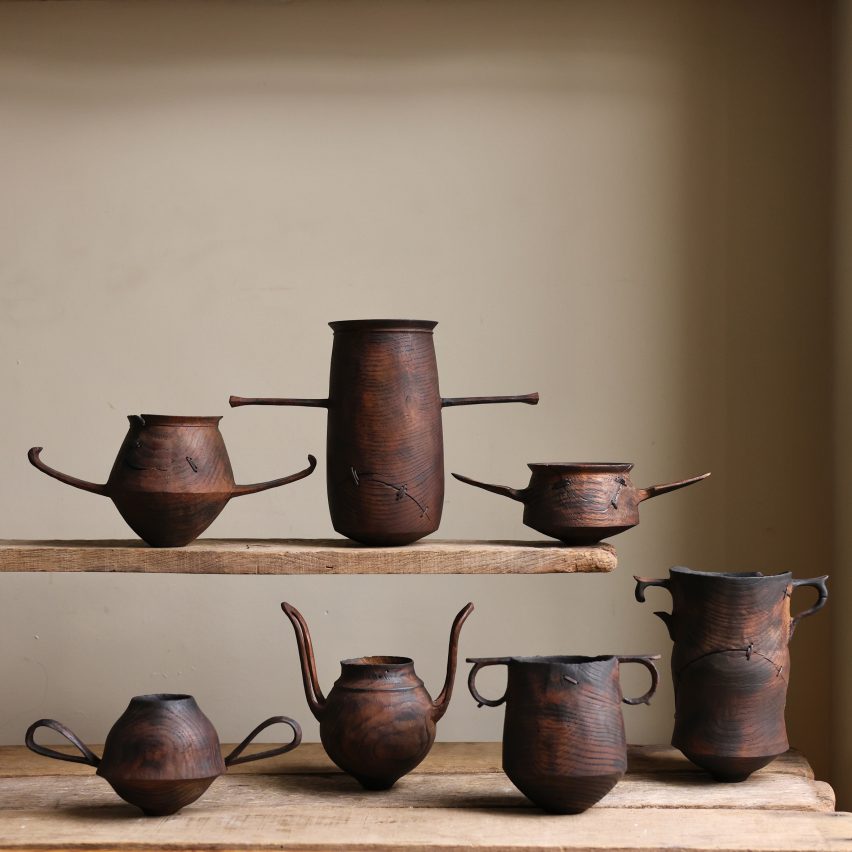
Any critical weak spots were mended by drilling tiny holes next to the fissures and using waxed cotton thread to stitch them together.
“Some of the stitches are so that structurally, it keeps the cracks where they are,” Plumb said. “Others can be aesthetic so that it balances out the necessary stitches.”
“With kintsugi, filling all the cracks is for both structural and aesthetic reasons. This is that same kind of approach but in a much more sparse way, really choosing where it is going to shine.”
The Novus collection aims to push woodwork in a new and unexpected direction by incorporating craft techniques from different disciplines.
The stitches were born from Plumb’s experiments in leatherwork, while the vessels themselves were shaped to recall ancient Roman drinking vessels made from clay.
The wood finish, too, was informed by ceramic glazes and involves layers of iron oxide and lime wash being applied to the pieces before certain parts are blow-torched, recalling the tree’s tumultuous history.
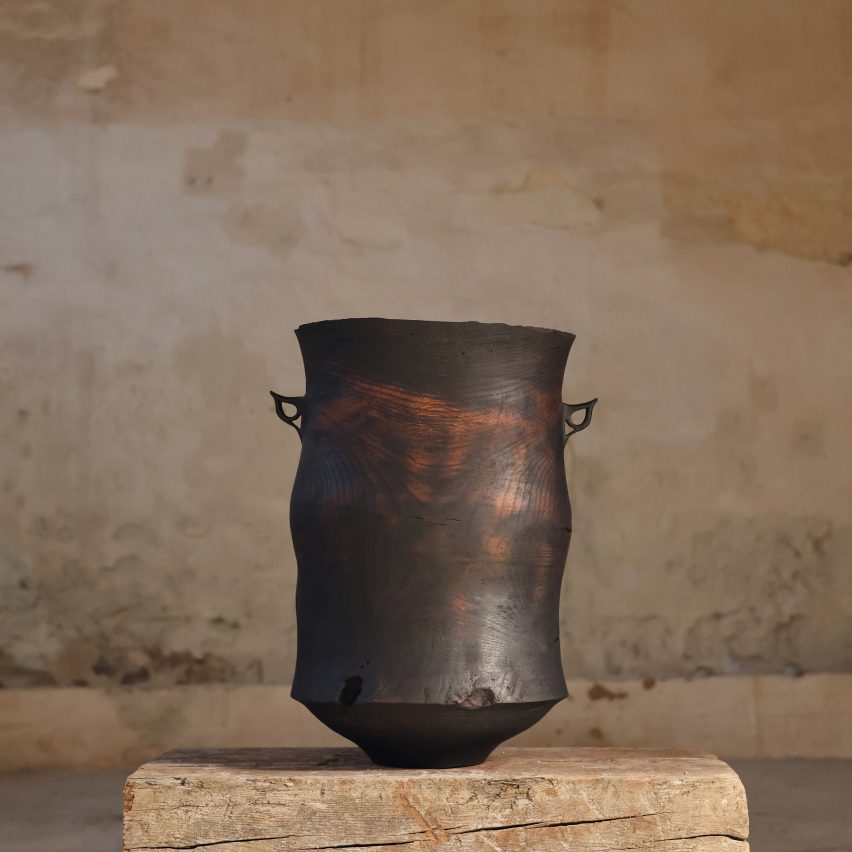
“We hope that our work inspires a whole younger generation or any generation of woodturners to think differently about what they can make,” Plumb said.
“We take a lot of reference from ceramics and other crafts. And we think, okay, that’s what they do in that craft. How could we interpret that in wood and create something that hasn’t been made before and continue to refine it?”
Conscious of emissions, Ash & Plumb allows all of its wood pieces to air dry over several weeks or even months to avoid the need for high-temperature kilns.
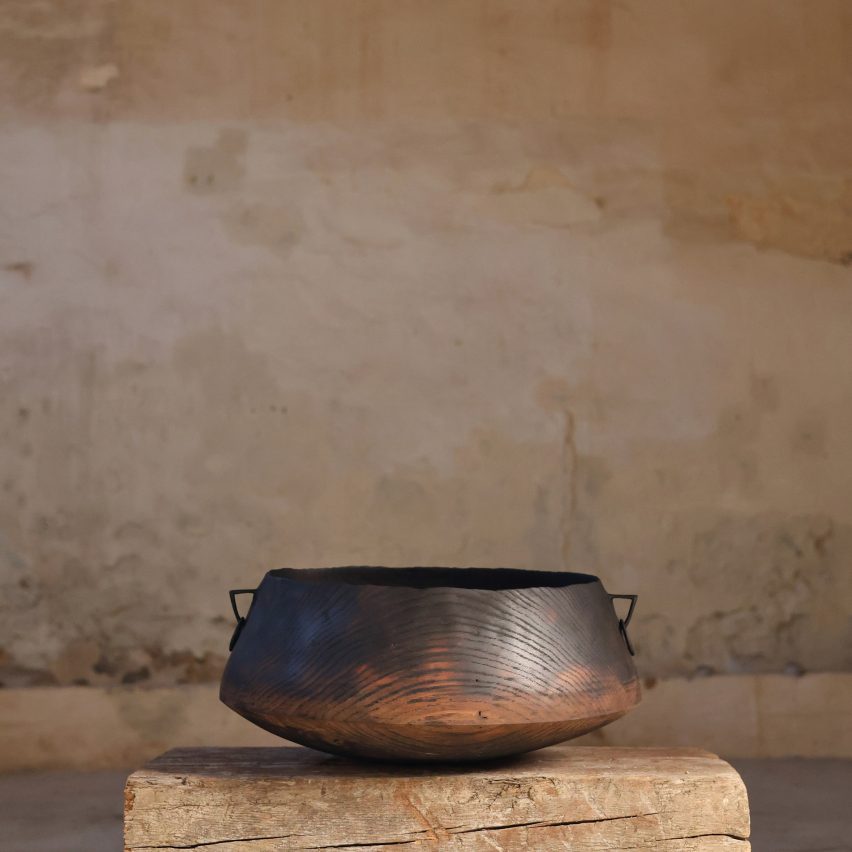
The studio also passes any wood shavings and offcuts onto neighbouring businesses in the South Downs, where they are used in horse stables, for gardening or firewood.
“We try to be as waste-conscious and as efficient as possible,” Plumb said.
Even after creating the 14-piece collection, half of the oak tree remains in Ash & Plumb’s studio. The duo now aims to turn the wood into more miniatures, which have proven particularly popular.
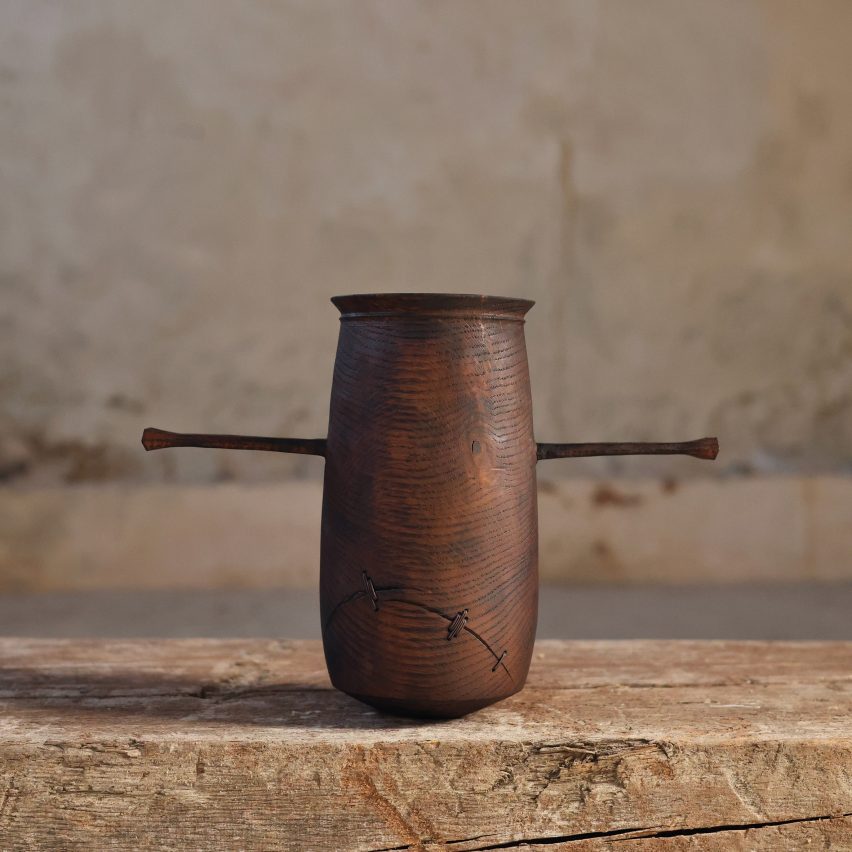
Novus is currently on display at London’s Somerset House for the 20th anniversary of the Collect fair for craft and collectible design.
It forms part of the fair’s Collect Open exhibition, showcasing 14 ambitious, conceptual pieces made specifically for the event.
Previous editions of the exhibition have been curated by specific designers, including Jay Osgerby.




